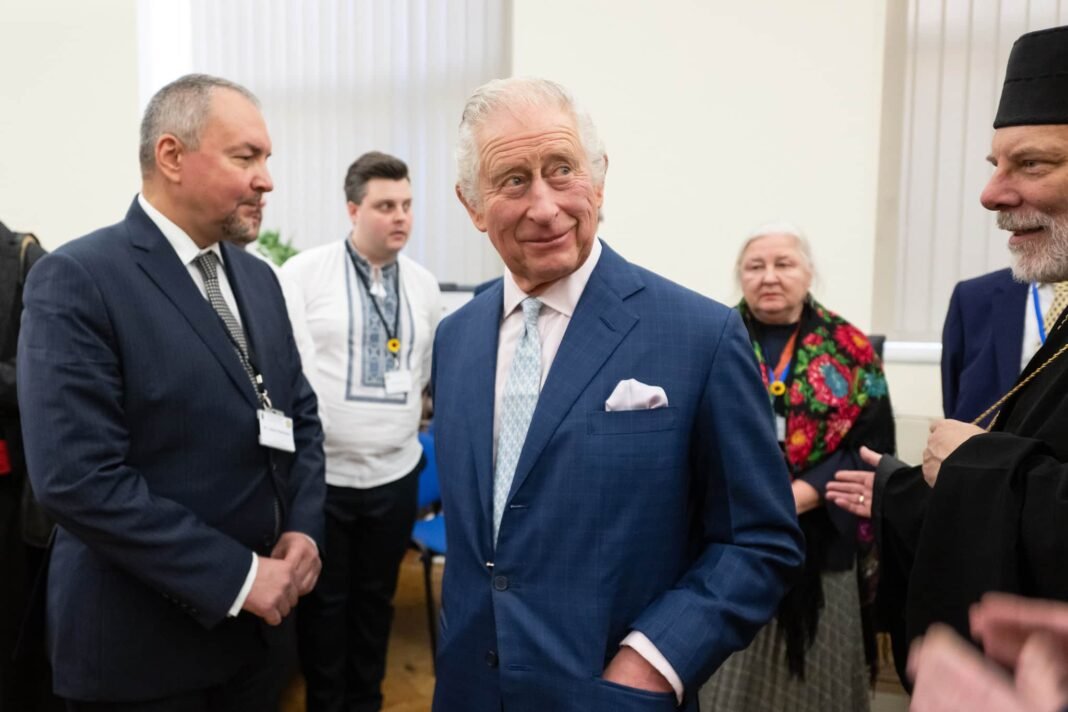
King Charles III was seen wearing a signet ring that serves as a powerful and visible tribute to the Greek heritage of his late father, Prince Philip, the Duke of Edinburgh.
The ring is also visible in the King’s portrait, unveiled recently at the Scottish Parliament.

The Greek connection of Prince Philip
The new signet ring features the distinct coat of arms of the former Greek Royal Family, a clear and visible nod to Prince Philip’s birthright.
The Duke of Edinburgh was born Prince Philip of Greece and Denmark in 1921 on the dining room table of Mon Repos in Corfu, Greece. He was the only son of Prince Andrew of Greece and Denmark.
However, this Greek connection was fraught with hardship: his family was exiled from Greece when he was just 18 months old after a military court banished his father. Although he spoke little Greek, his official title remained “Prince of Greece and Denmark” until he formally renounced it, along with his right to the thrones, in 1947 to become a naturalized British subject and marry Princess Elizabeth.
This signet ring is thus one of the few tangible symbols connecting the late Duke—and now the King—to the Greek royal house of his birth.
Related: A Symbolic Gesture: King Charles Sports Greek Flag Tie in Australia
Ring “cannot be measured on the open market”
The ring itself is believed to have been inherited by Prince Philip from his own father, Prince Andrew, who died in Monte Carlo in 1944. Photos of a young Prince Philip show him wearing the ring with the Greek Prince’s arms, an object he treasured throughout his life.
The King’s choice to wear this piece today offers a powerful, public tribute to his father and his Greek roots.
Jewellery experts underscore the significance of the gesture. Justin Daughters, MD of antique jeweller Berganza, told the Daily Mail that if this is indeed Prince Philip’s signet ring, “it carries a historical and emotional weight that cannot be measured on the open market. It would be a deeply personal and meaningful gesture, not just about the monarchy’s continuity, but a clear tribute to his father and the family’s Greek history.”
Charlie Pragnell, a director of the Pragnell jewellery firm, added that “it’s wonderful how jewellery passes from one generation to the next as it embodies so many fond memories and emotions.”
Related: Prince Philip: The Homeless “Greek God” Shunned by Palace and Churchill


